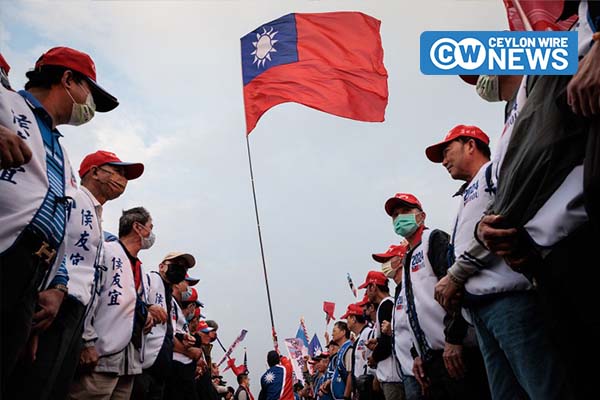Taiwan initiated voting on Saturday in a closely monitored election, poised to have repercussions beyond its borders due to heightened threats from Beijing. China has warned that the island’s future stands at a “crossroads.”
The self-governing island, home to 24 million people, will elect both a new president and parliament amid increased tension with China, which, under the leadership of Xi Jinping, has become more powerful and assertive towards Taiwan.
Polls opened on Saturday morning and will close at 4 pm (3 am Eastern Time), with results expected later in the evening under Taiwan’s efficient and transparent counting process.
The election campaign, showcasing Taiwan’s robust democratic credentials, has revolved around livelihood issues and the complex matter of dealing with the authoritarian neighbor, China.
China asserts Taiwan as its territory, despite never having controlled it. Xi has labeled Taiwan’s unification with the mainland as “a historical inevitability.”
The election results will not only shape Taiwan’s future but also potentially redefine its relations with Beijing. It serves as a test for the latest attempts by the United States and China to stabilize their strained ties.
Beijing, which frequently dispatches fighter jets and warships close to Taiwan, frames the vote as a choice between “peace and war, prosperity and decline.” It warned Taiwan voters to “make the right choice at the crossroads of cross-strait relations.”
Three men are competing to succeed President Tsai Ing-wen, with the election being a significant moment in Taiwan’s democratic history. The ruling Democratic Progressive Party (DPP), led by Tsai’s current vice president, Lai Ching-te, champions Taiwan’s de facto sovereignty, while the main opposition party, Kuomintang (KMT), represented by Hou Yu-ih, traditionally favors closer cross-strait ties. Ko Wen-je from the Taiwan People’s Party (TPP) seeks to challenge the political duopoly with a stance favoring closer ties with China but less deference to Beijing than the KMT.
The race is tight, with final polls indicating a slight edge for Lai over Hou, followed by Ko. Beijing, openly critical of the DPP, has intensified pressure on Taiwan before the vote, imposing sanctions on exports, deploying spy balloons, and showcasing a new aircraft carrier named after the mainland province closest to Taiwan.
Taiwan has accused Beijing of ramping up disinformation campaigns and interfering in the election process.
Despite the looming threat from China, some voters, particularly younger ones, prioritize economic and livelihood issues over cross-strait relations. The Taiwan People’s Party, positioning itself as a pragmatic and middle-way party, has attracted support in this regard.
The election turnout is substantial, with citizens traveling across the island to cast their ballots, reflecting the significance of the vote amid growing tensions with China. Source: CNN









